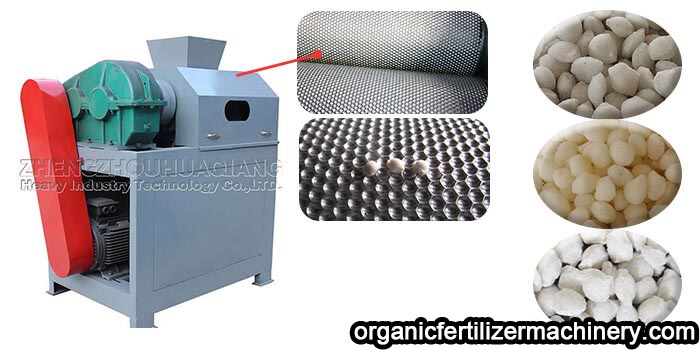The double roller granulator makes use of the characteristics that organic particles can be inlaid and grow up with each other under a certain force, so there is no need to add binder during granulation; the solid particles can be screened after granulation to reduce the energy consumption of drying; the organic matter after fermentation does not need to be dried, and the moisture content of raw materials can be less than 15%.

Features of double roller granulator:
- 1. The pelletizing effect of the double roller granulator on ammonium bicarbonate, ammonium chloride and monoammonium phosphate is particularly good. The pelletizing rate can reach 85%. It is not necessary to dry, and the investment is small and the return efficiency is fast.
- 2. There is no drying process in the double roller granulator. It is granulated at room temperature and formed in one time. It has the advantages of less investment, quick effect and good economic benefit.
- 3. The fertilizer granulation machine has the advantages of small power, reliable operation, no waste discharge, stable operation, convenient maintenance, reasonable process layout, advanced technology and low production cost.
- 4. It can be used for granulation of compound fertilizer, medicine, chemical industry, feed, coal, metallurgy and other raw materials, and can produce compound fertilizer of various concentrations and types (including organic fertilizer, inorganic fertilizer, biological fertilizer, magnetic fertilizer, etc.).
Common problems of double roller granulator:
When the roller granulator is used to produce fertilizer, it is necessary to pay attention to the requirements for the production of granules, which can be irregular. There is also the problem of particle hardness. If it is too soft, there will be no long-distance transportation. In the production of fertilizer, it is necessary to carry out production according to the crushing and moisture content of the materials. If the materials can not meet the production requirements, the production can not be carried out, because this will lead to the decrease of the pelletizing rate of the particles and the screening can not be carried out.